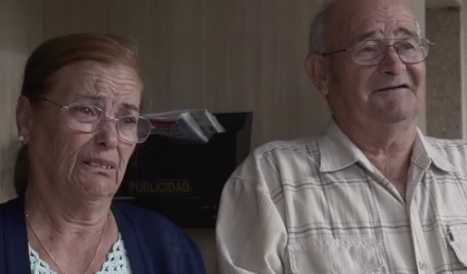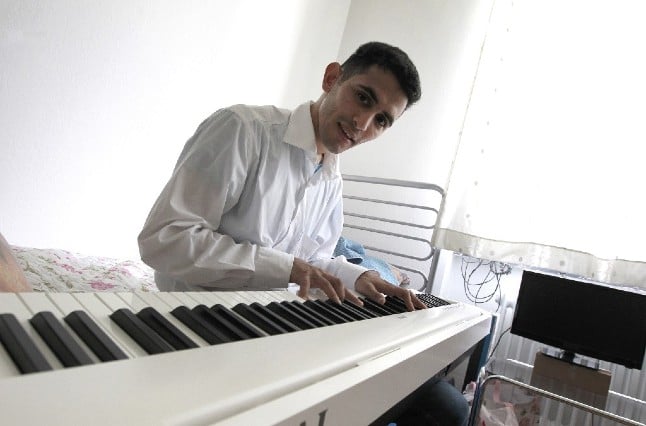Bankia made the decision on Monday to cancel the eviction of an elderly couple who are disabled and illiterate after bowing to public pressure and a change.org petition that collected 220,000 signatures in just 48 hours.
Last month Maria del Carmen Lebron, 81, and Antonio Pleguezuelos, 76 who have lived in their home in the Madrid suburb of Pinto since 1970 were given an eviction notice as Bankia called in an outstanding debt owed by their son Gregorio.
It was only then that they learnt that in 2005 they had signed documents acting as guarantors for a €219,500 mortgage for their son, even though they hadn’t understood what they were signing.
In fact the mortgage agreement states that the contract was read out to the couple by a notary and that they had fully understood and agreed the terms. Their lawyers now argue that the agreement was invalid as both are completely deaf – Antonio lost his hearing when he was four years old after falling ill with meningitis and Maria del Carmen was deaf since birth.
When their son lost his job in the crisis and fell behind on mortgage payments the bank called in the debt and demanded they leave their house by January 30th 2017.
Their eldest son Benjamin made the case public starting a petition on change.org which garnered more than 200,000 signatures in just 48 hours and made headlines across Spain.
On Monday, Bankia announced that it had stopped the eviction order and would cancel the debt “given the particular vulnerability observed in this case”.
The case highlights the still ongoing plight of indebted homeowners suffering years of unemployment as a result of Spain’s economic crisis.
During the peak of the eviction crisis as banks called in loans, hundreds of families were evicted each day. In 2013, some 50,000 families were turfed out of their homes.




 Please whitelist us to continue reading.
Please whitelist us to continue reading.
Member comments